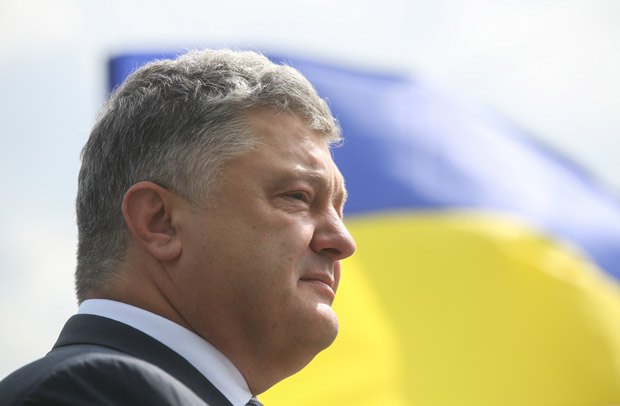
How to win the campaign. About refrigerators and TV
"Who, if not him?" the presidential administration likes to say about Poroshenko's second term. What they mean when they say this is "who would not give the country to Yulya (Tymoshenko) (something tells me we have heard this before, right?).
Poroshenko's position is more restrained. "I'm a team player. If there is another candidate representing the authorities, who is stronger than me, I'm ready to give in," he lately told his colleagues in a private discussion. "Let's think together, who in theory, could this be? Maybe Sasha? "he looked around the audience (as you may have guessed, Sasha is National Security and Defence Council Secretary Oleksandr Turchynov – Koshkina's note).
"Sasha is unlikely to agree. But I would consider Yuriy Vitaliyovych [Lutsenko]," Arsen Avakov reacted immediately.
It is clear that the described scene is a gentle trolling exchange among the members of the so-called "strategic seven", however, it was not pulled out of thin air.
Discussions under the slogan "how we should develop the country" (crossed out), or rather "how to get Poroshenko elected for the second term" are a regular practice in the presidential administration and in public offices close to him. During the last six months, they were particularly intensive. However, a conditional "HQ" aimed at systemic (emphasis on the word systemic) work has not been formed yet. This is for starters.
The second point. The main issues on the agenda of the future campaign have not been defined. Although it is clear that it is better to set trends, to form them independently than to react sporadically to current challenges. The presidential administration still has an opportunity to choose, but does not use it.
We will not take into account the incessant, sticky discussions "how to prevent Tymoshenko from making it to the runoff" and "who is a more convenient opponent: Boyko or Rabinovych".
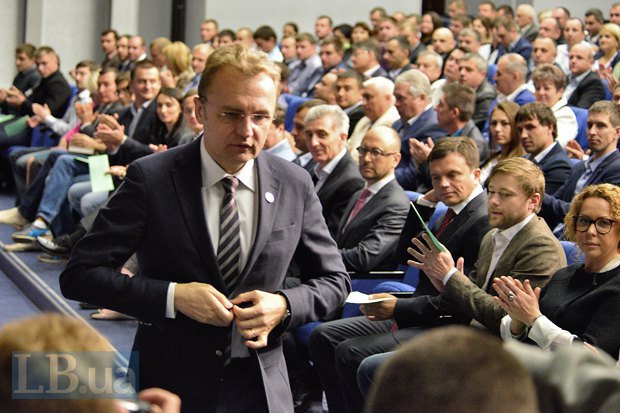
These discussions do not mention Andriy Sadovyy and Svyatoslav Vakarchuk.
The presidential administration does not consider the former a serious opponent (after all, so much has been done for this). The latter is not an option yet, they think: let him first make up his mind and then we'll see. At the same time, experts from Kiev-based Gorshenin Institute of Problem Management, who have been closely following Vakarchuk's political dynamics, suggest that his prospects should be taken much more seriously.
It was the third point.
The fourth and, perhaps, the most important point. Not only a "political" but "economic" HQ has not been formed (which, ideally, should work as one).
Is Poroshenko's second term possible? Of course. But only if the majority of citizens is persuaded by their packed refrigerators rather than by TV full of empty promises. Not the other way around.
Let me again quote the experts of Gorshenin Institute whose active vocabulary includes the term "[former Kyiv mayor Leonid] Chernovetskyy's effect."
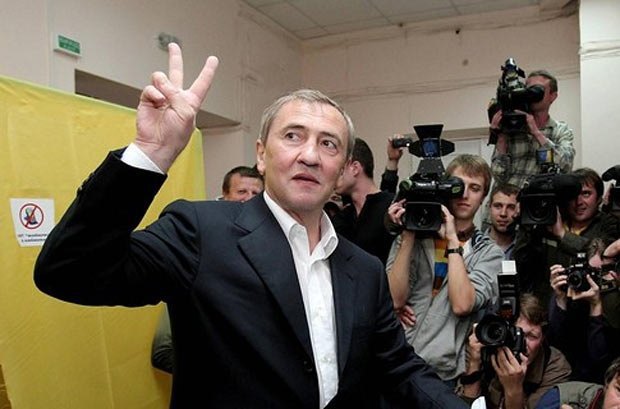
Let us recall the year of 2008, the re-election of Kyiv's mayor. Leonid Mykhaylovych is in the lead with 37.7%, mostly because the confrontation between his two closest opponents, Oleksandr Turchynov (19.1%) and Vitaliy Klitschko (17.9%), diluted the alternative electorate.
Do you not think that there are many similarities with the current situation, when the current head of state is facing several key competitors with nearly equal ratings? And when they are also milling about the same electoral field, "picking" the most acceptable "sparring partner" out of them is a mere formality.
The Klitschko factor
The solution is simple and complex at once: large-scale economic reforms are required. So that they are felt by all Ukrainians, so that there is something to show voters.
In a parliamentary-presidential republic, the president who wants to be re-elected to office cannot do without the prime minister's support, without his willingness to share economic successes with the head of state.
Is Prime Minister Volodymyr Groysman like this? Grovsman said on more than one occasion that he is not planning to run for the top post (at least for now). In particular, he did so on Sonya Koshkina's Left Bank show. However, the lack of wish or unpreparedness (treat it as you like) to claim the country's top post does not mean the person is void of ambitions. On the contrary, Groysman is full of them. Make the name, go down in history, develop further... Yes, in a parliamentary-presidential republic, the head of the executive can only move across the power ladder not up… For example, in the status of the head of a new pro-government party.
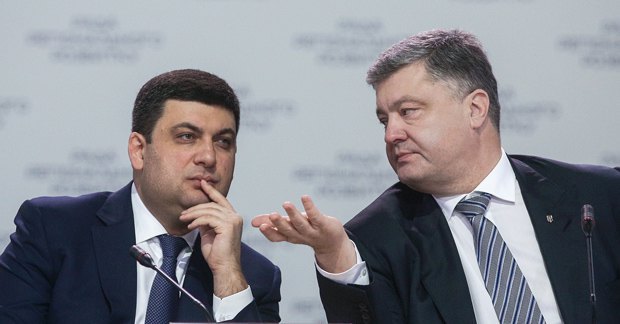
Let us have a more detailed view here.
Poroshenko certainly needs a strong party of power with a view to the planned presidential election.
The Petro Poroshenko Bloc and the People's Front certainly need it with a view to the planned parliamentary elections.
Local elites certainly need it for homing in on.
By inertia, Solidarity and the People's Front are considered to be the parties of power today. And although it is true that they are the pillars of the parliamentary coalition, their ratings leave much to be desired. In particular because no-one cares about their development in the regions (while the possibilities are a dime a dozen, there is a true problem with motivation).
The situation in Solidarity is particularly depressing: its members have not been able to convene a congress for over a year to elect a new leader instead of Vitaliy Klitschko. And it is not so much about the new law on public service which bans Klitschko from heading the party, but about the fact Petro and Vitaliy have parted ways.
Yes, formally the configuration of 2014 - when Poroshenko supported Klitschko for the capital's mayor, and Klitschko supported Poroshenko for presidency; when Solidarity and UDAR planned the parliamentary ticket together (although in the end the latter got less than a third) - remains, but in practice this design is not operational. It is enough to see how UDAR votes in parliament to see that it is true.
By the way. Since we are talking about Vitaliy Klitschko. As the mayor of the capital, he proved to be more effective than many expected him to be, which brings the issue of his further personal prospects to the forefront, including in 2019.
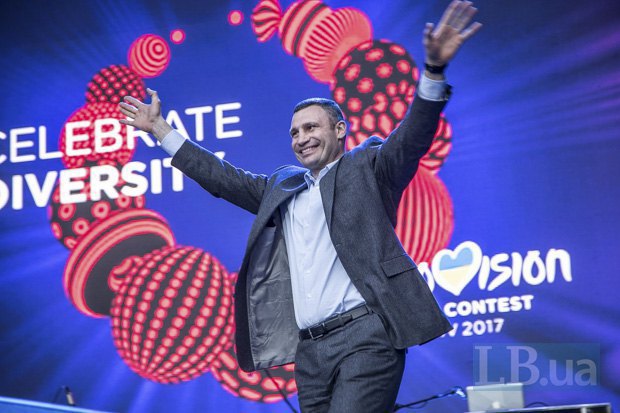
"Vitaliy, will you run for president?" one of the top officials asked him directly the other day (precisely during Independence Day celebrations).
"I haven't planned yet," Klitschko waved the question aside.
"But jokes aside?" the interlocutor was not satisfied.
"Jokes aside, I will, of course, think about it."
"Here. This is an honest answer," the person who initiated the dialogue concluded.
Klitschko will easily win a new term in Kyiv, there is no alternative here (for now at least).
Can he join the presidential race? Of course. Why not?
First, any top-level politician (who he undoubtedly is) should take part in national campaigns, especially if there is a planned parliamentary election a few months after the presidential one.
Second, "the Klichko factor" is a platform for additional consultations among oligarchs, including in Vienna.
Third, "the Klichko factor" radically changes the breakdown in the first round and makes the configuration of the second one completely unpredictable.
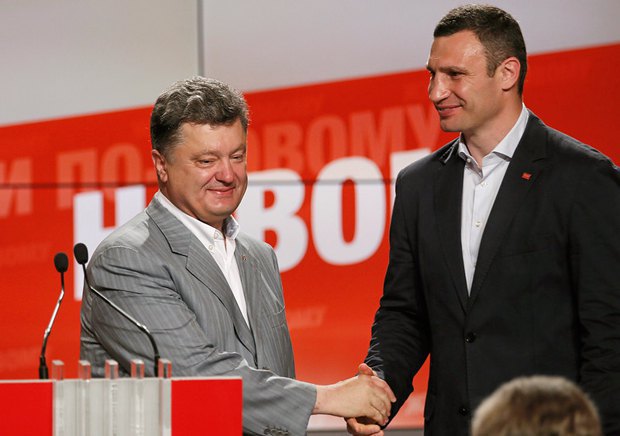
By the way, a few words about the oligarchs. More precisely, about the oligarchs who own TV channels. The current authorities have something like an unspoken "non-aggression pact" with the majority of oligarchs (not all, but the majority). There is no guarantee that it is going to last for long. Moreover, there is no guarantee that it will still be relevant at the beginning of the campaign, but so far the general arrangement is as follows: you can criticize but not make insults. Everyone honoured it, except for ZIK TV which dared to host Mikheil Saakashvili's project (with a quite predictable content). It is within the framework of his show, as we know, the video clip which accelerated the decision on the Ukrainian citizenship of the former Georgian president was played.
And after a short time, the owner of the channel, Petro Dyminskyy, who got into a tragic road accident, hastily left the country. Judging by the tight interest of police in him, he is unlikely to return any time soon.
One may wonder: what is the connection? The answer is simple: the concurrence of situational interests of Petro Poroshenko and Arsen Avakov (although they are generally considered antipodes) gives, at times, very significant results.
I don't think the Saakashvili-Avakov line requires any explanation. As for Poroshenko, Dyminskyy's story at least gives him moral satisfaction. As most, a strategic asset in the form of a TV channel popular in western Ukraine will not unnecessary on the eve of 2019.
Lutsenko: partner or travel companion? And what about Groysman?
But let us return to the issue of a "new party of power". Its second potential component is the People's Front which was originally created as a purely technical project and which stopped any development after it made it to parliament. Today, a merger between Solidarity and the People's Front is the simplest and most obvious way of collaboration among pro-government forces with a view to uniting efforts during the elections.
The first to express the idea was Yuriy Lutsenko. A special point here is that the merger should in no case be mechanical, but instead should become an association "from scratch", with equal contributions from the parties, with the involvement of the best investments and the riddance of anything which pulls them down.
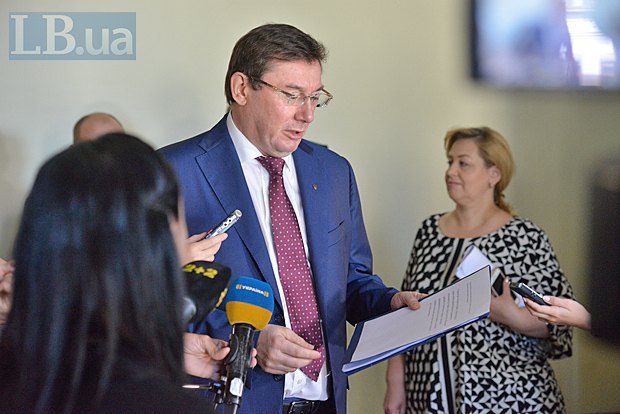
He said this back in the spring during the discussion of the draft constitutional reform, which would redistribute powers from the president to parliament, which Arseniy Yatsenyuk and Arsen Avakov suggested that the president should launch.
Their idea was discarded when others suggested taking it to a referendum (the right way to bury anything), but Lutsenko's idea took root.
It was implied that Yuriy himself could chair a new structure. For example, after the triumphant completion of the "Yanukovych case". But November, by the end of which the former president's fate was to be decided, is already looming large, and judges are in no hurry to issue a verdict. Lutsenko is in no hurry to leave his post either. On the contrary, every day he spends in the chair of prosecutor-general capitalizes Lutsenko's personal political shares. And although none of the motions for MPs had been crowned with a court verdict, Lutsenko's activity creates considerable inconvenience, including to the closest supporters of the current government.
There will be more when a new parliamentary session starts. "The more, the better! It is necessary to bring the situation with these motions to the point of absurdity," the Petro Poroshenko Bloc puts on the brave face. "Anyway, they will end up with nothing." They may seem brave but they are clearly concerned.
It is obvious to everyone: the longer Lutsenko works at the Prosecutor-General's Office, and the more successful his performance seems to the public, the higher his chances of a big political career are. Yes, from the point of view of 2017, he is most likely to do this in tandem with President Poroshenko. But by 2019, everything can change. And radically. Remember this.
From the point of view of Bankova, the most effective (and most comfortable for the presidential administration) head of a renewed party of power is Oleksandr Turchynov. The only catch is that Turchynov has no interest at all in changing his post of the National Security and Defence Council secretary for a portfolio of a party functionary.
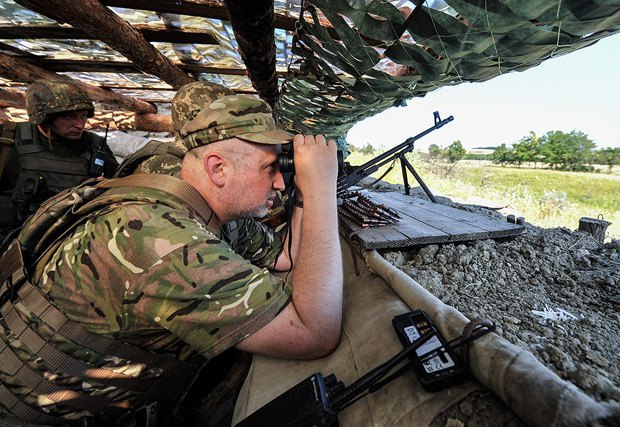
But for Volodymyr Groysman, the leadership of a renewed party of power could be an excellent option. This is clearly better than repeating, for example, the fate of Valeriy Pustovoytenko. In 1999, Pustovoytenko honestly worked to have Leonid Kuchma re-elected. He was sincerely hoping to become his prime minister again. However, he came short of only 20 votes. Viktor Yushchenko became the new prime minister, to the demand of the time.
Today, the only mandatory condition for the creation of a really powerful electoral tandem between Petro Poroshenko and Volodymyr Groysman is the reconstruction of their own relations. For today they are a little better than those between Poroshenko and Yatsenyuk back in the time.
Here is just one small example. Imagine: the end of spring-early summer, yet another meeting of the "strategic seven". An informal, relaxed meeting. At some point, Poroshenko and Yatsenyuk half-jokingly half-seriously begin to discuss the creation of a single party "for two," that is "50 to 50". "Wait, I do not understand, but where are my 20%?" Groysman sounded genuinely interested. "Are we - you and I – not one and the same?" the president asks rhetorically, already implying an answer.
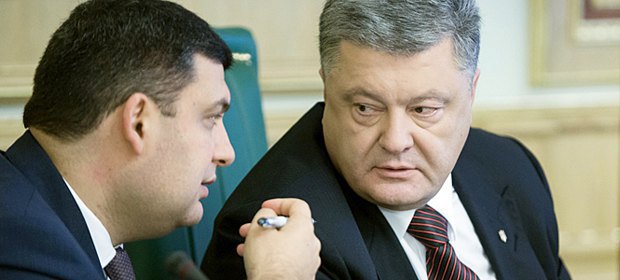
And about the opposition
"The worst thing that can happen to the authorities is if the opposition unites and later nominates and fleshes out a single candidate. Just like we did back in the time," one senior MP and very active participant in the Revolution of Dignity notes.
Concerns are exacerbated for a reason. As you know, Saakashvili announced that he would try to return to Ukraine on 10 September. There is no guarantee that he will return but the show is guaranteed. Fatherland, the Democratic Alliance, Self-Reliance, Valentyn Nalyvaychenko's supporters, Anatoliy Hrytsenko (not to mention the followers of the former president of Georgia) have already announced their participation. Not for Mikheil Nikolozovich, of course, but because the information pretext is more important. There are plans to transform it into a campaign tour of cities and towns. The tour, as they say in the current opposition, is called to mobilize the supporters and prepare the ground for early parliamentary elections. Time is enough, there is a year. As of the autumn of 2018 - 12 months before the scheduled race - it will become impossible to have an advanced reset.








